It's not always easy finding a board game the whole family will enjoy. And some people groan at the idea of a board game in which players simply move their pawns around a maze towards an elusive goal. If this is you, what you need is a "non-boring, non-board board game"! The games on this list are terrific choices for kids and families who want to play games but need something more unique than checkers and Candy Land to inspire them.
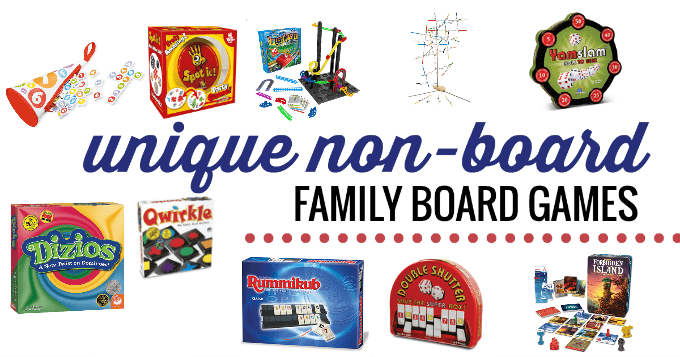
We own all of these non-board games (except one, which we've played elsewhere) and I am heartily recommending them based on our experience playing games. Many of them are very popular games with a long track record and most have also won awards, so they make great gifts. I am confident other families will love these "non-board board games!" (Note: Game images and title links are affiliate links that earn commission from qualifying purchase.)
Roller Coaster Challenge Logic & Building Game:
Using challenge cards, players engage their logic skills to finish a roller coaster. It is primarily designed as a single player game, but we enjoyed playing it as a family, taking turns and helping each other out. This is an excellent choice if you are looking for a game that builds on S.T.E.M. skills, especially engineering and design.
MORE: STEM Games for Kids
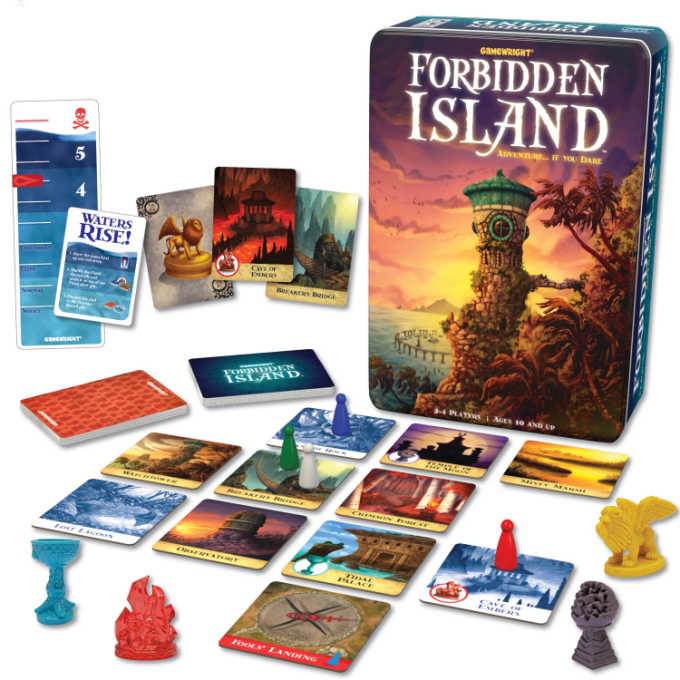
Forbidden Island. My kids adore this game for its unique challenges. I love it because it is a cooperative game so everyone practices working together for a common goal. Players work as a team to capture the four treasures and escape the island before it sinks. Island cards are arranged in a grid and pawns move from tile to tile performing actions like shoring up the island against flooding, uncovering clues and rescuing other players. Don't miss the companion games, Forbidden Desert and Forbidden Sky!
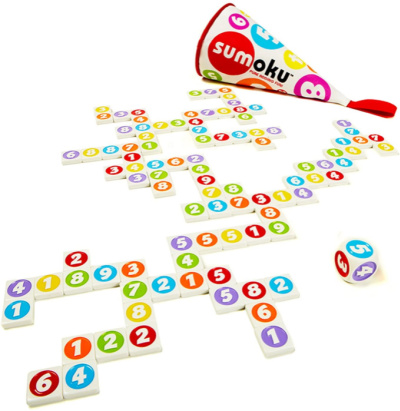
Sumoku. Sumoku is what you get when you merge sudoku, a crossword puzzle, Qwirkle, Scrabble, and arithmetic. Yes, I know. That description sounds AWESOME, right? The instructions include five different versions so you won't get bored. Players create rows of numbers in which the sum totals a multiple of the key number, determined at the beginning of the game. Players then take turns adding on to the rows in a manner similar to Scrabble.
See more of our favorite math games for kids.
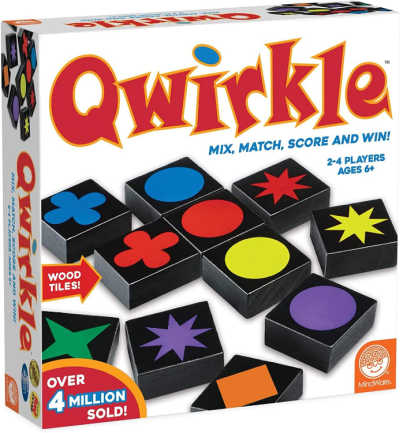
Qwirkle. Qwirkle looks a bit like a cross between dominoes and Scrabble but the rules are quite different. Players take turns trying to create "qwirkles," sequences of six tiles all sharing at least one attribute—color or shape. You win points along the way based on the positioning of your tiles. This is one of the most popular family games ever and has won several awards, including the Mensa Select Award. It was also our game of the month!
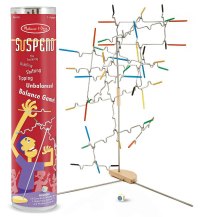
Suspend. This fun balancing game is very suspenseful! Players take turns trying to add sticks to a pedestal without tipping the structure over! This game is excellent for building concentration skills and requires a lot of patience. If you like Jenga, Suspend is a fun alternative.
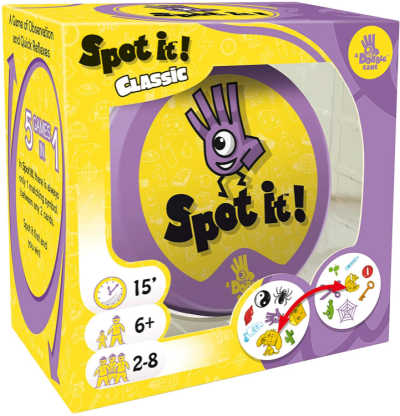
Spot It. This is one of our 6 favorite games of visual perception and is great to have on hand when you are on the go. There are several variations so players don't get bored and children of all ages can participate. Players race to be the first person to spot which cards display the same object. It sounds simple, but it's not as easy as it looks! Spot It is also an excellent travel game.
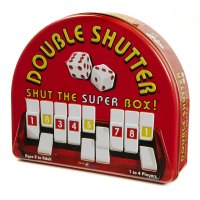
Double Shutter. You can play Double Shutter with multiple players or as a solitaire game. In fact, it is quite addictive! Players must roll the dice in order to flip down the numbers in the "super box". But if they don't strategically choose which numbers to flip, they might be shut out! It's an excellent way of learning how different combinations of numbers can be added to produce the same sum. It also teaches logical and strategic thinking.
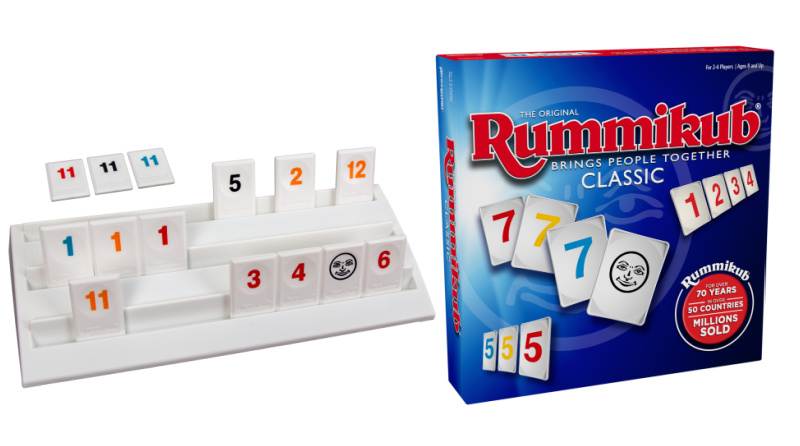
Rummikub. Rummikub has been a huge hit in our home. It is actually one of my all time favorites. My teenage son treats me to a match every year on my birthday, just the two of us. As in the classic Rummy card game, the object of Rummikub is to use up your "hand" (in this case, tiles instead of cards) by creating numbered runs and sets. Players can strategically reorganize the tiles already out on the table in order to play the tiles in their hand. The first player to use up his tiles wins the round, amassing points based on the tiles left in the other players' hands.
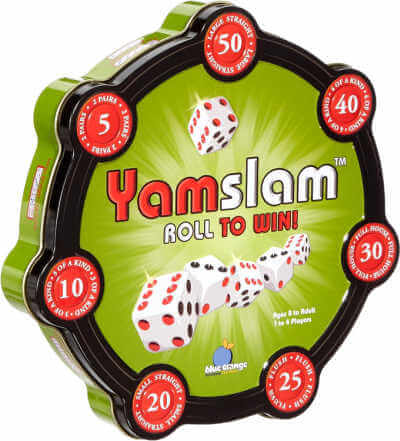
Yamslam. Yamslam is a fun twist on Yahtzee, but in my opinion much less frustrating and much better for children. Players get 3 tries in an attempt to roll a scoring hand. Instead of keeping track with a score pad, players collect chips. It is one of my youngest child's favorite games!
If you love non-boring, non-board games, check out these single player logic games!


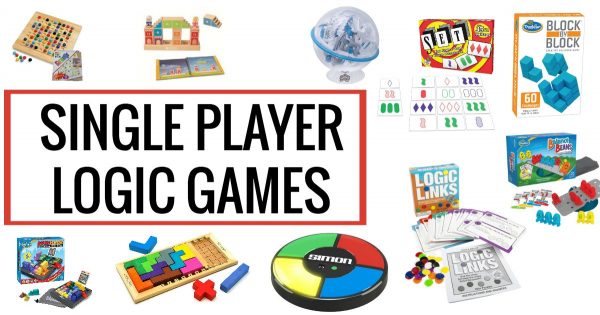

wendy says
stumbled upon your site from pinterest and found so many wonderful resources. i've just reserved a ton of your book recommendations at the library and am ordering some of these games on amazon. I'm considering pulling my 5yo out of montessori next year to homeschool first grade and websites like yours help to build my confidence that we can do it and do it well. thank you!
Erica says
Happy reading!
Norah in Toronto says
Hi Erica, I want to get some new games for Christmas. Just wondering....could my six-year old enjoy Forbidden Island? Should I wait a year or two or do you think it could be okay? (He can't read yet, but he plays Cribbage so he's a fairly sophisticated game player.)
Would love your advice. Thanks for sharing the things you love, which line right up with the things we love!
Erica says
If he is an experienced game player I think it might be alright. Since Forbidden Island is a cooperative game he will be working with the other players to determine each move. Gamewright recommends the game for ages 10 and up, which I think is too old, unless only children are playing. My youngest son was playing with us when he was 6-almost-7. I hope this helps!
Jennifer Murphy says
I would add Othello and Sequence, two of my family's favorites.
Thanks for the list!
Carrie Adams says
Would you please remind me of what "build your own board game you recommend?" Thank you!